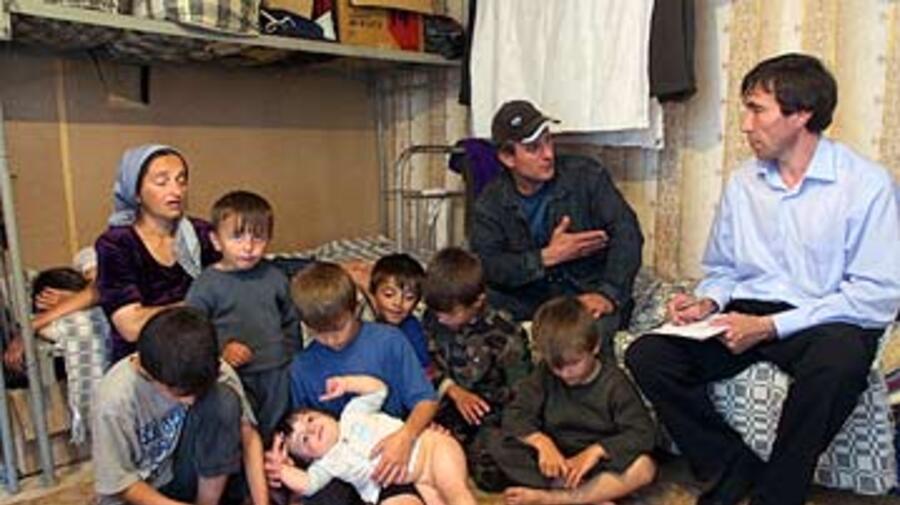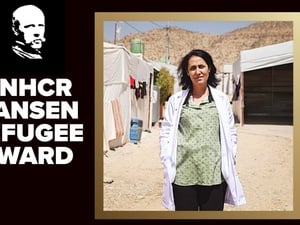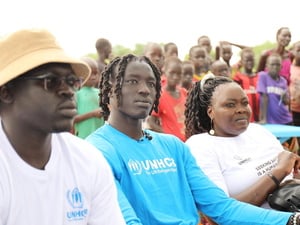UNHCR concerned about IDP backlash after attack in Ingushetia
UNHCR concerned about IDP backlash after attack in Ingushetia

This Chechen family was told by their landlord to leave their temporary settlement because their utility bills were not paid by the authorities as agreed.
GENEVA, July 16 (UNHCR) - The UN refugee agency has raised concerns about hostile reactions and pressure on internally displaced persons (IDPs) in Ingushetia following the June 21 attack that killed some 90 people in the Russian republic.
Some 50 IDPs were temporarily detained in the aftermath of the attack, but most of them have since been released. Five remain in detention, where they have been formally charged by the security services.
"Police operations and ID checks are still continuing in the temporary settlements, but we have not heard of any recent complaints of improper behaviour," said UNHCR spokesman Ron Redmond at a news briefing in Geneva Friday.
Of the approximately 50,000 IDPs from Chechnya who are currently living in Ingushetia, about half are ethnic Chechens while the rest are ethnic Ingush. Some 28,000 who are living in private accommodation have remained largely unaffected by the backlash, while some of the 24,000 living in 181 temporary settlements have faced pressure in different forms.
"It was reported that some local officials were applying heavy psychological pressure on IDPs to return home," said Redmond. "Local landowners, and in some cases local officials as well, threatened to evict IDPs from a number of settlements."
While only one settlement - MTF Altievo, where the five detainees were living - has been closed so far, 20 others hosting 7,800 IDPs are either under threat of eviction or are affected by utility cuts.
"As with the closure of the tented camps - the last of which was shut down in early June - the litmus test for voluntary return is the availability of alternative accommodation inside Ingushetia," added the UNHCR spokesman. "It seems that in some cases where eviction is still threatened, no alternative has been proposed apart from return to Chechnya."
The refugee agency has raised its concerns with the authorities in Ingushetia and Moscow. But its ability to intervene in Ingushetia has been hampered by the fact that its international staff have not been able to return to the republic since they were relocated to other parts of the Russian Federation after the June 21 attack.
"While some international NGO staff resumed working in Ingushetia at the end of June, UN international staff - including UNHCR - are still not back, since the authorities say they do not have sufficient armed guards to guarantee their safety," said Redmond. "UNHCR hopes that this situation will be resolved shortly, especially after a planned return of international staff this Wednesday once again failed to happen for the same reason."
Local UNHCR and NGO staff on the ground managed to resume monitoring in the settlements at the end of June. As of earlier this week, they had visited 54 settlements that together host some 18,000 IDPs.
In a gesture of support, the Head of the Ingush Migration Service visited several temporary settlements last week and reassured the IDPs there that the Migration Service would continue to support them.
Between 3,500 and 4,000 IDPs are estimated to have returned or applied to return to Chechnya since June 22 - only slightly higher than the high-end average monthly return.









